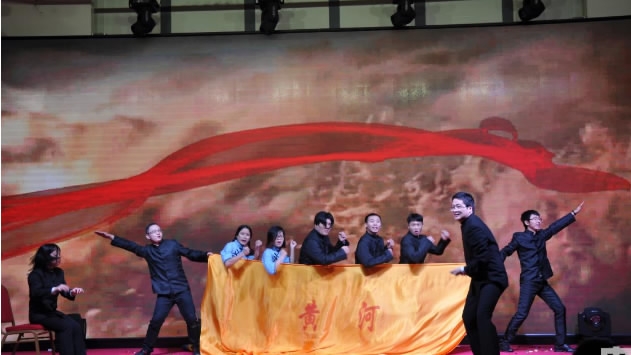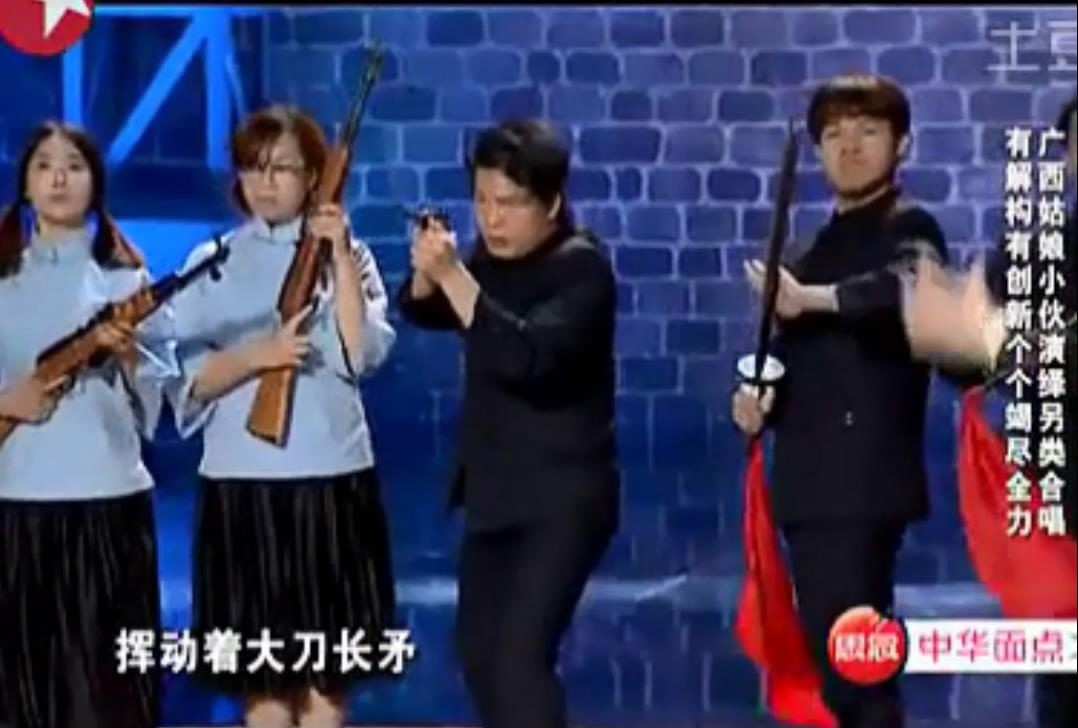
Culture
22:50, 29-Jan-2018
Spoof on patriotic song ‘Yellow River Cantata’ outrages Chinese
CGTN

Several parodies of the patriotic song “Yellow River Cantata” have been widely criticized by Chinese netizens for blaspheming a traumatic history and the spirit of the nation.
The spoofs were believed to be originated from a talent show for grassroots comedians, during which performers were seen using clownish gestures and tones to demonstrate the cantata. Later, many companies and school students produced their own versions during the year-end parties, with lyrics re-written and tones distorted.
The “Yellow River Cantata” by Chinese composer Xian Xinghai and poet Guang Weiran, is a patriotic song written in 1939, during the Chinese people’s resistance against Japanese invasion. It is aimed to encourage the Chinese people and enhance the troops’ morale in a time when the country was facing one of the biggest crisis during the WWII and was in a life-and-death struggle.

Online spoof of the cantata. /Xinhua Photo
Online spoof of the cantata. /Xinhua Photo
The song was selected as one of the 10 most-loved patriotic songs by the Chinese people in 2015.
The spoofs outraged the Chinese netizens soon after being posted online, with many criticizing the mischief to be disrespectful and vulgar.
“I don’t think it is funny at all. In fact, I got goose bumps all over me, and I don’t the song should be played like this. It makes me uncomfortable,” commented Weibo user @Xiaohuzi8888 on one of the spoof videos.
“It is not only disrespect against the artists who composed the song, but also against the martyrs who sacrificed their lives to defend the country. It is disrespect against the country’s traumatic history,” commented @Duiyingchengshuang010 under a report posted on Weibo by People’s Daily.

File photo of visitor watching exhibition on "Yellow River Cantata" at a museum in Hangzhou city, Zhejiang. /VCG Photo
File photo of visitor watching exhibition on "Yellow River Cantata" at a museum in Hangzhou city, Zhejiang. /VCG Photo
The descendants of the composer and poet are among the first to express their anger over the incident.
“I used to listen to the cantata in tears, and I just couldn’t believe that anyone would ever spoof it like this. My father composed the song with his blood and tears,” said Xian Nina, daughter of the composer.
“I am angry with those who host such programs. They are adults and should know well of the history, and yet they entertain such degraded acts. It is unforgivable,” said Zhang Andong, son of poet Guang Weiran.
Both expressed their hopes that such programs and videos be removed from the online platforms. Zhang also said that he would use legal ways to defend the song if necessary.
The incident also sparked a debate over whether there should be a “bottom line” for online spoofs, since in recent years, in order to meet the entertaining requirements of the netizens, many classical works have been parodied or spoofed.

A spoof of the cantata in a talent show. /Screenshot via Weibo
A spoof of the cantata in a talent show. /Screenshot via Weibo
Lin Daye, musician and symphony conductor of Shenzhen Symphony Orchestra, said that he is not against adaptation and different performances of classical works. However, there must be a “bottom line” for entertainment.
“Pure grandstanding of the classics, even without vicious purpose, is blasphemy,” said Lin. “They may not have evil intentions in the first place, but once the spoofs are put online and open to the public, they would generate really bad influences,” he added.
Yang Lang, an independent scholar and media person, said the pan-entertainment deconstruction of the classics should be prevented.
“The spoofs on solemn works do not express sense of humor. They are distortion and catering to vulgarity,” said Yang.
The online spoofs have been in the center of debates for a long time across China, as many even used to distort the “March of the Volunteers,” China’s national anthem. On October 1, 2017, China’s National Anthem Law took effect, banning any malicious modification to the song.
The law also stipulates the occasions and etiquette for the use of the national anthem.

SITEMAP
Copyright © 2018 CGTN. Beijing ICP prepared NO.16065310-3
Copyright © 2018 CGTN. Beijing ICP prepared NO.16065310-3